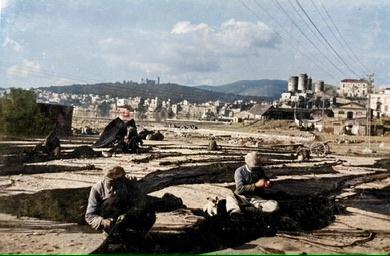How does Mallorca regulate hotel construction to protect environmentally sensitive areas?
Similar Topics
mallorca hotel construction
environmentally sensitive areas
land-use planning
environmental assessments
sustainable building materials
energy-efficient design
sustainable tourism
hotel capacity limits
Mallorca, part of the Balearic Islands, has developed a comprehensive regulatory framework to manage hotel construction with a strong emphasis on protecting its environmentally sensitive areas. The island’s authorities enforce strict land-use planning regulations that categorize zones based on their ecological value and vulnerability. Coastal areas, natural parks, and rural landscapes undergo detailed environmental assessments before any development is approved. This process ensures that new hotel projects do not disrupt critical habitats or landscapes that are essential to Mallorca’s unique biodiversity.
Environmental impact studies are mandatory for larger developments, and these evaluations consider factors such as water usage, waste management, and effects on local flora and fauna. Additionally, there are clear restrictions on building height, density, and architectural style to minimize visual intrusion and preserve the island’s natural beauty. Many regulations also prioritize the use of sustainable building materials and encourage energy-efficient designs to reduce the ecological footprint of new hotels. Local governments work closely with environmental agencies to monitor ongoing compliance and address any emerging issues.
The Balearic government and Mallorca’s local councils promote sustainable tourism as a key part of their strategy. This includes limiting the expansion of hotel capacity in sensitive areas and incentivizing the renovation of existing hotels rather than the construction of new ones. By balancing economic development with environmental stewardship, Mallorca aims to maintain its appeal as a natural destination while safeguarding fragile ecosystems. These carefully considered measures reflect the island’s dedication to preserving its landscapes for future generations and supporting a tourism industry that respects its environment.
Environmental impact studies are mandatory for larger developments, and these evaluations consider factors such as water usage, waste management, and effects on local flora and fauna. Additionally, there are clear restrictions on building height, density, and architectural style to minimize visual intrusion and preserve the island’s natural beauty. Many regulations also prioritize the use of sustainable building materials and encourage energy-efficient designs to reduce the ecological footprint of new hotels. Local governments work closely with environmental agencies to monitor ongoing compliance and address any emerging issues.
The Balearic government and Mallorca’s local councils promote sustainable tourism as a key part of their strategy. This includes limiting the expansion of hotel capacity in sensitive areas and incentivizing the renovation of existing hotels rather than the construction of new ones. By balancing economic development with environmental stewardship, Mallorca aims to maintain its appeal as a natural destination while safeguarding fragile ecosystems. These carefully considered measures reflect the island’s dedication to preserving its landscapes for future generations and supporting a tourism industry that respects its environment.
🧩 Related Questions
Related Question
What role does agriculture play in Mallorca’s overall water consumption and scarcity?
Related Question
How do local agricultural initiatives in Mallorca support the promotion and branding of local food products?
Related Question
What role do figs play in Mallorcan festive or special occasion desserts?
